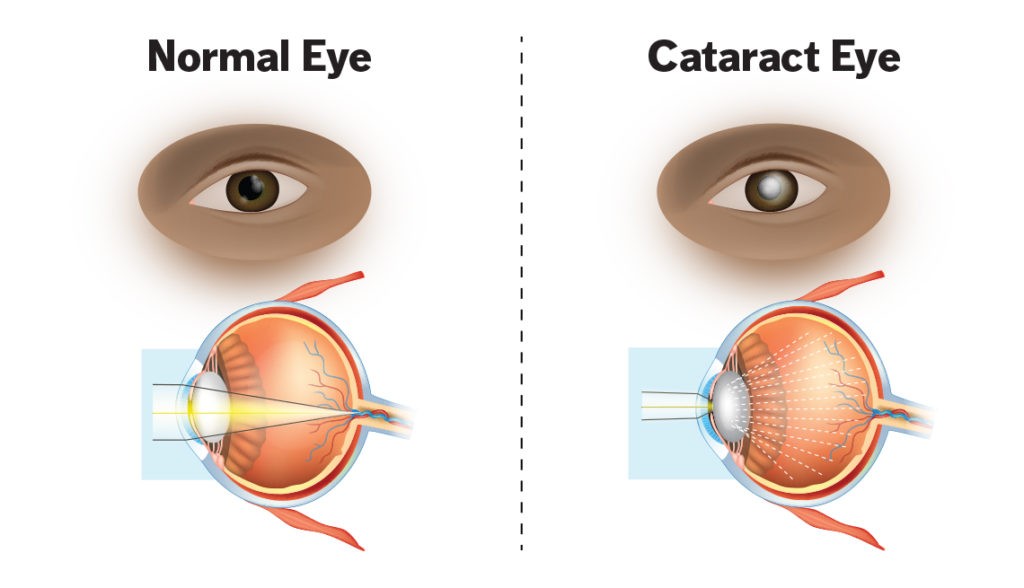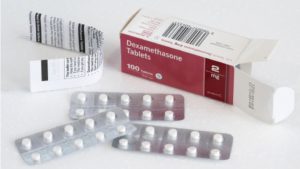
Recently Diagnosed or Relapsed? Stop Looking For a Miracle Cure, and Use Evidence-Based Therapies To Enhance Your Treatment and Prolong Your Remission
Multiple Myeloma an incurable disease, but I have spent the last 25 years in remission using a blend of conventional oncology and evidence-based nutrition, supplementation, and lifestyle therapies from peer-reviewed studies that your oncologist probably hasn't told you about.
Click the orange button to the right to learn more about what you can start doing today.
- You are here:
- Home »
- Blog »
- Multiple Myeloma »
- Multiple Myeloma Side Effect- Cataracts
Multiple Myeloma Side Effect- Cataracts

HI, Mr Emerson. I recently developed a multiple myeloma side effect from high-dose dexamethasone therapy. I am thinking of going for a cataract operation of my right eye. I have a few questions that I hope you can answer.
- I am not on any medication at the moment (used to be on Dexamethasone), but I do take curcumin, Vitamin D3 and fish oil.
- Do I need to stop taking curcumin before cataract surgery, considering it is a blood thinner?
- Is cataract operation risky for MM patients? and
- If my left eye is long-sighted, should I get a long-sighted or short sighted lens for my right eye (which is to be operated on)?
- MM Survivor
- MM Cancer Coach
- Director PeopleBeatingCancer
Recommended Reading:
- Multiple Myeloma Chemotherapy – Antioxidants Enhance Action
- Multiple Myeloma Chemotherapy Kills (SAE/FAE)
- Multiple Myeloma Chemotherapy, Allergy, Hypersensitivity, Side Effects?
[Debate on the advantages and disadvantages of multifocal and monofocal intraocular lens]
- First of all, whether it is worth the expense of contrast sensitivity and increased visual disturbance in return for compensatory adjustment?
- Second, whether it is possible to really get the full range of vision and to get rid of dependence on glasses to use multifocal intraocular lens?
- Third, how to grasp the indications of multifocal intraocular lens to play to their strengths.”
One-year outcomes with new-generation multifocal intraocular lenses
Conclusions: Multifocal IOLs provide a greater depth of focus and higher patient satisfaction, and make intermediate and near visual tasks easier than do monofocal lenses. New-generation, diffractive, pupil-independent multifocal IOLs provide better near vision, equivalent intermediate vision, less unwanted photic phenomena, and greater spectacle independence than either monofocal or refractive multifocal IOLs.
Can Corticosteroids Affect Vision?
The most concerning potential side effects of the eyes can be glaucoma and cataracts…
Taking steroids can raise your eye pressure. This is true for the many steroid forms.
Eye drops and oral medications are more likely to cause eye issues. Very high doses of inhaled steroids can also cause side effects in the eyes.
Cataracts
Taking steroids can cause a cataract type doctors call posterior subcapsular cataracts. It causes a small, cloudy area to form underneath the eye’s lens.
While cataracts are a known side effect for some people when taking steroids, they’re highly treatable.
If a person doesn’t take steroids for their eyes as directed, they can be at risk for more dangerous and less treatable side effects, such as ciliary body fibrosis maculopathy. Both of these conditions involve damage to parts of the eye.


